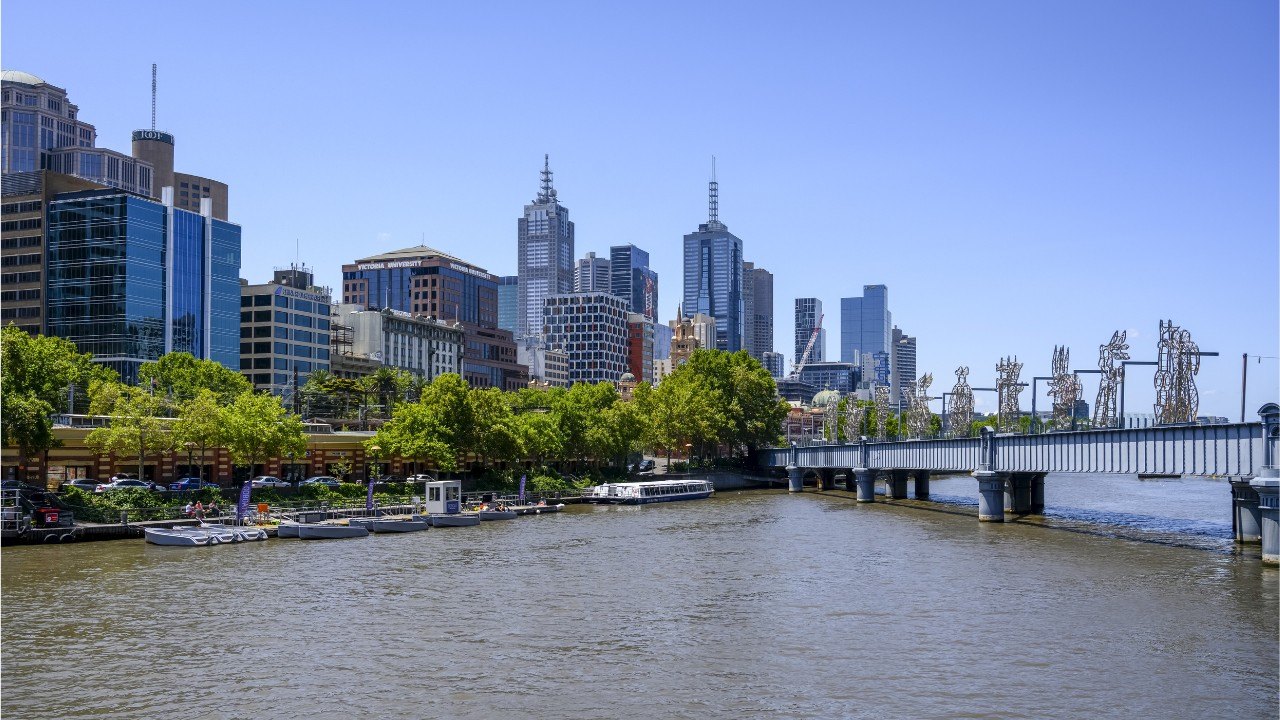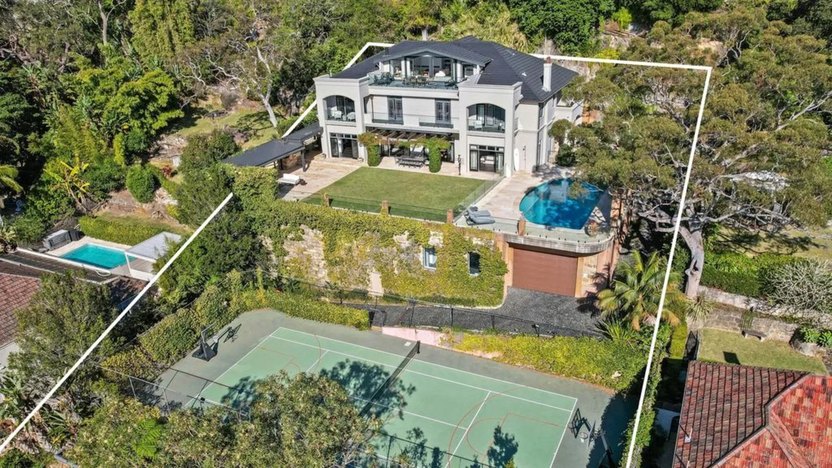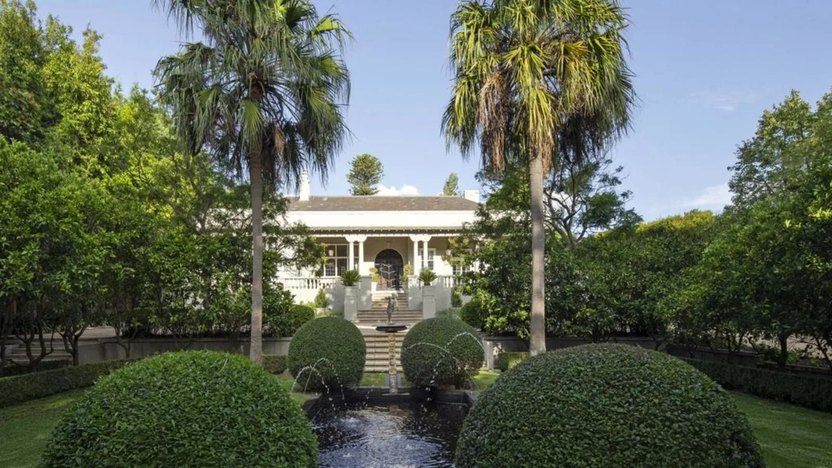Australia’s Sinking Exchange Rate Is an Opportunity for Buyers With U.S. Dollars


Keith Levit/Design Pics Editorial/Universal Images Group via Getty Images
Home buyers armed with U.S. dollars have a moment of opportunity to seize a favorable exchange rate in Australia.
The Australian dollar has sunk below 65 U.S. cents since the U.S. election of Donald Trump, who’s promised to slap significant tariffs on large trading partners in his second term. IAnd the downward trajectory is expected to continue, with the Australian dollar slipping to 62 U.S. cents as of Thursday.
Economists from Australian institutions, such as Commonwealth Bank and National Australia Bank, are warning the dollar could plunge below 60 U.S. cents this year. The last time Australia’s currency traded below 60 U.S. cents¢ besides the pandemic was in 2003.
While the softer local dollar isn’t ideal for Australians buying imported goods or traveling overseas, it is great news for offshore purchasers with an eye on Australian real estate, said Michael Pallier of Sydney Sotheby’s International Realty.
“It’s a good thing when the Australian dollar sits below 65 U.S. cents. I love a low dollar because it means more foreign buyers and expats can buy here, and this is the time of year they’re coming back into Sydney,” Pallier said.
“When the dollar is this low, it’s very good for our property market, and it’s also good for our exports,” he added.The falling Australian dollar coincides with a report released in late November by PropTrack gauging international interest in local real estate, which revealed that international searches on realestate.com.au had increased compared to the same time last year.

Realestate.com.au
Report author and senior data analyst at PropTrack Karen Dellow said searches from the U.S. spiked during the previous quarter, as polls showed Trump could win in November.
“Now that Mr. Trump is the president-elect, it will be interesting to see whether an increase in searches is experienced,” Dellow said in a news release accompanying the report.
Most searches from the U.S. originated in California, New York and New Jersey, but interest from Texas was also high. Globally, the most searches from would-be buyers and renters came from Auckland, New Zealand.
“What makes Auckland particularly special is that it’s punching well above its weight compared to other cities with a high number of searches, such as Hong Kong and Tokyo,” Dellow explained.
With a population of about 1.7 million, Auckland has a very high proportion of people looking to relocate to Australia compared to other foreign feeder markets, such as Tokyo, home to 9 million people, and Hong Kong, with 7.5 million residents.
According to the report, potential foreign buyers are looking for higher-priced properties than domestic buyers.
Australian house hunters on realestate.com.au usually look for homes below A$600,000 (US$398,000), while overseas searchers most commonly set an upper price limit of A$1 million. This higher search threshold is clearly reflective of the greater buying power many currencies currently have against the Australian dollar.
Melbourne was the most popular buyer destination, followed by the Gold Coast, Brisbane, Sydney and Perth, taking out the top five. Coveted suburbs such as Brighton, South Yarra and Camberwell—all in Melbourne—sit in the higher price range.
Jamie Mi, head of the international division at Melbourne-based agency group Kay & Burton, said she has recently seen a spike in international buyers, many of them Australian expats from Singapore, the U.S. and the U.K.
“If they’ve got a young family, they will look at Kew, Canterbury Hawthorn or Hawthorne East, anywhere in the Boroondara area of Melbourne. But we’ve also seen a new shift into Brighton because the Brighton Grammar school is encouraging more international students to come in,” she explained.

Realestate.com.au
Mi said the weaker Australian dollar is fueling confidence for offshore buyers, especially those with school-aged children.
“Right now, with the Australian dollar where it is, it’s like you’re buying the same asset for a 10% or 15% deduction if you have U.S. dollars,” she said. “Normally, around this time of the year, business dies down over Christmas and the New Year, but right now, we’re literally receiving multiple offers in excess of A$15 million. They’re serious clients, and they’re asking for short settlements to get their families into a new home for the start of the school year in January.”
As domestic buyers remain in a holding pattern, waiting for the Reserve Bank of Australia to lower the official cash rate for the first time since November 2020, Mi said international buyers have an opportunity to make a move with less local competition and greater buying power.
“It’s a really good position for a foreign buyer to be in at the moment. Many of them are cash buyers who are ready to go,” Mi said. The lower end of the luxury market has been particularly challenging as most of the domestic buyer pool still depends on financing. “These buyers are relying on the interest rate to go down to gain more confidence, whereas your international buyers really don’t know about our interest rate.”
Australian expats make up the bulk of house hunters from the U.S.. Sydney-based agent Michael Coombs of Atlas Group said he received increased inquiry for luxury homes before and directly after the U.S. election.
“When the Aussie dollar is low, we always have plenty of interest from the U.S., especially from expats thinking about coming back. This year I’ve had nine expats living in the States now looking with pretty big budgets between A$20 million and $50 million,” he said.
“I’d say my expat market has been about 25% of all sales this year, but two years ago it was probably only about 10%.”
Coombs, who has an office in Sydney’s affluent Lower North Shore as well as the multimillionaires’ holiday hot spot of Byron Bay, said overseas buyers see great value for money in Australian real estate, but their place of origin will dictate what’s at the top of their wish lists.
“Those buyers from the States are coming here to find a grand home in a nice neighborhood with great private schools near beaches,” he said. With the U.S. election in the rearview mirror and the Australian dollar predicted to stay low for the foreseeable future, Pallier added that international buyers looking toward Australia remain confident.
“Quite a few buyers have already arrived in the last couple of weeks from all over, including England, Europe, Hong Kong and Singapore,” he said. “It’s a pretty attractive time to be bringing money into Australia, especially if you have U.S. Dollars.”
Categories
Recent Posts











"My job is to find and attract mastery-based agents to the office, protect the culture, and make sure everyone is happy! "
